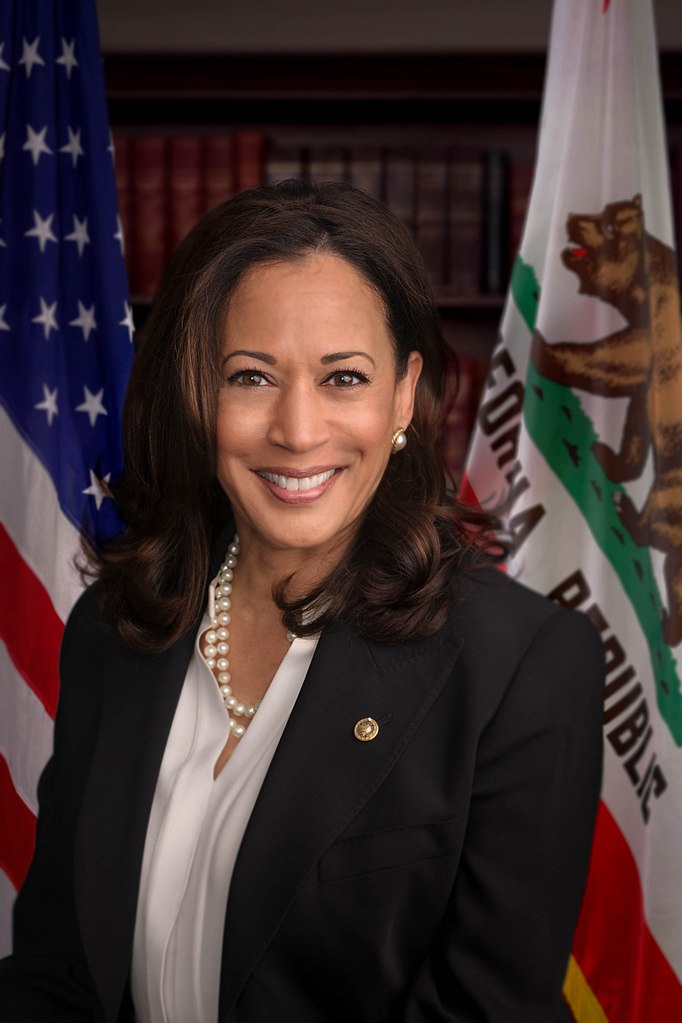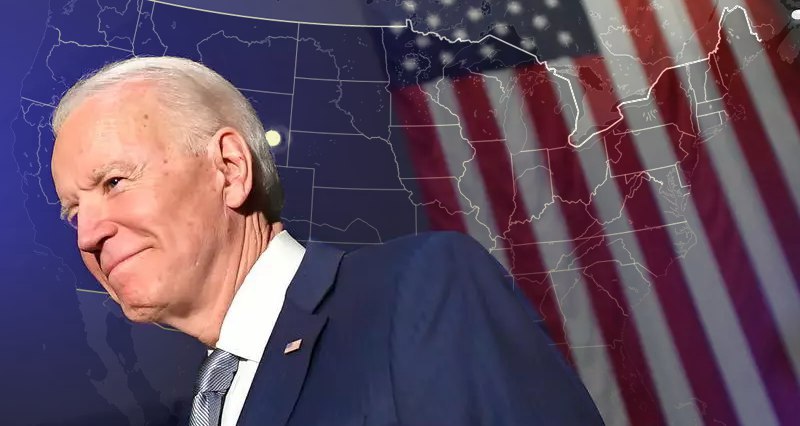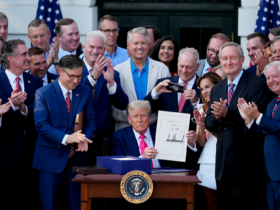The 2020 Democratic National Convention opened on Monday, August 17 in Milwaukee. Within 4 days, the Democratic Party must formally elect Joe Biden and Kamala Harris as its candidates for President and Vice President of the United States.
According to the opinion polls, the former Vice President is still ahead of the incumbent President Donald Trump, meaning that the probability he wins the Presidential elections in November 2020 is extremely high. Biden’s foreign policy team as a whole has been formed, and the contours of the possible foreign policy of the Biden government have taken clear outlines.
The Liberal interventionists
Last week, Biden announced the decision to make Senator Kamala Harris his campaign partner. The black Democrat (her parents are from India and Jamaica) will be a candidate for the post of the US Vice-President.
Given Biden’s age of 77 and his progressive dementia, it is highly likely that Senator Harris, 55, will play a more important role in the decision making process than Vice Presidents usually do. It is also possible that she will be able to take over as president due to Biden’s incapacity or the death of the elderly veteran of American politics.
However, if we look at her foreign policy statements, we get the impression that there are no fundamental differences from Biden’s positions. Both candidates have approximately similar positions which correspond to the positions of the Democratic Party establishment and its globalist sponsors.
In general, this platform can be described as a return to the position of liberal internationalism and liberal interventionism that prevailed under the Obama and Bill Clinton administrations. This means a return to a policy of interference in the affairs of other countries under the pretext of protecting human rights and freedoms or minorities.
Thus, the Clinton administration in the 90s intervened in the conflicts in Yugoslavia and Somalia, and under Obama, the US supported the “Arab Spring” which plunged the Middle East into chaos. The conflicts in Syria, Libya and Yemen, the bloodshed during the change of power in Egypt, the emergence and blossoming of ISIS became a natural consequence of this policy.
Biden: The return of liberal leadership
Biden announced the foreign policy part of his election program back in July 2019 during a speech in New York. At that time, he stated that he wanted to restore the global leadership of the United States.
According to Biden, Trump’s policy based on the principle of “America First” only leads to the isolation of the United States. Biden’s promises included lifting the ban on immigration to the United States from Muslim countries, ending trade wars with China and NATO allies, returning the United States to the nuclear deal with Iran and the Paris climate agreement, as well as extending the START III treaty with Russia.
At the same time, Biden promises to firmly oppose Russia, accusing that country of interfering in the US elections. Things are not that simple when it comes to China either. Biden, like other senior Democrats, criticizes China for alleged human rights violations in Xinjiang and Hong Kong. His campaign launched an advertisement in the US blaming Trump for being weak against China.
The US declares Cold War on China: but can it win this time?
Joe Biden made the global spread of democracy a priority of his foreign policy. For this purpose, he promised to increase funding for non-governmental organizations operating in other countries and to hold a summit in Washington on strengthening democracy around the world.
At the same time, the candidate harshly criticized the leadership of Turkey, Hungary, the Philippines and Saudi Arabia. These US allies were accused by Biden of being authoritarian and not being committed to liberal values. He also threatened Riyadh with the cessation of support for the military campaign in Yemen.
Biden also opposes Trump’s Deal of the Century, which the current American administration is imposing on Palestine. However, according to his aide, Biden assured that US military aid to Israel will not be reduced under any circumstances, even if Israel occupies the West Bank.
In essence, this means that, in the face of external grievances, the Joe Biden administration is prepared to turn a blind eye to Israeli policies towards the Palestinians.
Given that according to the existing government agreement in Israel itself, Benjamin Netanyahu is to be replaced by Benny Gantz, who is close to American Democrats, US-Israeli relations will not be seriously affected if Trump leaves the White House. Israel will continue to be the United States’ most important ally in the Middle East.
Biden hasn’t ever said he will reverse Trump’s recognition of Jerusalem as the capital of Zionist state.
Joe Biden’s position on Turkey is also clear and offers no chance of reconciliation. In December 2019, Biden said in an interview with The New York Times that the US should support anti-Turkish Kurdish formations in Syria. He also said that he was ready to support the internal Turkish opposition.
“What I think we should be doing is taking a very different approach to him now, making it clear that we support opposition leadership,” Biden said, referring to Turkish President Recep Tayyip Erdogan; “He has to pay a price.”
The appearance of this comment in social networks triggered a strong reaction from the spokesman for the Turkish president, Ibrahim Kalin.
The analysis of Turkey by @JoeBiden is based on pure ignorance, arrogance and hypocrisy.
The days of ordering Turkey around are over.
But if you still think you can try, be our guest.
You will pay the price.
— İbrahim Kalın (@ikalin1) August 16, 2020
Kamala Harris: Party course
The reasons Biden chose Harris as Vice President is obvious. She’s a woman, relatively young for a politician of this caliber, and also black. This is an important plus in the context of the ongoing BLM protests, especially given Biden’s accusations of harassing women and supporting racial segregation in the 1970s.

Traditionally, Harris has focused on the domestic political agenda, where she has supported all liberal initiatives. In an interview with the Council on Foreign Relations, however, she outlined her main foreign policy positions.
They are virtually no different from what Biden is proposing.
With regard to China, Harris advocates maximum pressure on Beijing using alleged infringement of Uyghur rights. According to her, “The United States must reclaim our own moral authority and work with like-minded nations to stand up forcefully for human rights in China and around the world.”
With regard to Iran, Harris advocates a return of the US to JCPOA – Nuclear Deal. At the same time, she intends, along with her allies, to “work with our partners to counter Iran’s destabilizing behavior in the region, including with regard to its ballistic missile program”.
With regard to Russia, Harris is in favor of countering “Russian aggression” in Ukraine by providing military assistance to Kiev.
“As the current occupant of the White House, I will consistently stand up to Putin in defense of democratic values, human rights, and the international rule of law,” Harris says.
Kamala Harris also has no enthusiasm about strengthening relations with Turkey. In October 2019, she criticized Trump for the decision to withdraw troops in Syria from the border with Turkey, as it gave Ankara the opportunity to conduct an operation against the PYD-YPG terrorists.
Kamala Harris consistently supports the recognition in the United States of the “genocide” of Armenians. Last year she cosponsored ” the Armenian Genocide Resolution” – S.Res.136. and voted for the recognition of “genocide” in December 2019.
Today marks 104 years since the Armenian Genocide began. We cannot forget the 1.5 million Armenians killed between 1915 and 1923.
I’m proud to co-sponsor a Senate resolution commemorating those lost and ensuring U.S. acknowledgement of this horrific chapter in history.
— Vice President Kamala Harris (@VP) April 24, 2019
On other issues, Harris takes a moderately liberal stance criticizing the Trump administration primarily for tactics – the use of brute force instead of soft power tools. This is a distinctive feature of the Democrats’ approach to American foreign policy.
It is worth noting that Kamala Harris is an ardent supporter of Israel. One of her first steps as a senator was to introduce a bill to counter the UN, which accused Israel of building Jewish settlements in the West Bank and East Jerusalem.
War or peace?
Another promise made by Joe Biden was to use force in foreign policy only to protect Washington’s “vital interests” and to end protracted wars in Afghanistan and the Middle East.
Kamala Harris makes the same promise. Moreover, Trump accuses Harris of being a “big slasher of funds” for the American military. In fact, however, she has mostly supported all recent increases in defense spending within US military budgets.
Joe Biden, in turn, as a senator, supported all recent US interventions, from Bosnia under Bill Clinton to Iraq and Afghanistan under George W. Bush, although Biden was in charge of withdrawing troops from Iraq under Obama. However, later, even under Obama, the Americans returned to the country under the pretext of fighting ISIS.
Earlier, Donald Trump promised to return American troops home, but the Americans kept a serious military presence in Syria, Iraq and Afghanistan. It is unlikely that the Biden Harris administration, if it comes to power, will keep its promise and reduce military interventions and the number of US military members abroad.
Biden and his team will not be able to give up military intervention if they propose a course for promoting democracy all over the world. In the past, the US used guns and bombs as well as tools of informational warfare to impose liberal ideology and regime change.
At the same time, one should expect the United States to intensify and try to intervene in other countries in multiple ways. It should be remembered that the Arab Spring and the attempted coup d’état in Turkey in 2016 (https://unitedworldint.com/12488-the-army-police-and-nation-suppress-american-coup-attempt-dogu-perincek-chairman-of-vatan-party-turkey/) took place during the years Obama and Biden were in power. The role of the US in these processes is not a secret to anyone.
If Joe Biden wins the US presidential election, Washington will try with renewed vigor and a slightly altered image to preserve its hegemony and pursue politics as if the world remained unipolar and under its control The US will face resistance from China, Russia, Iran and Turkey as it does now. There may be some deterioration in relations with Saudi Arabia and the UAE, and improvements with Western European countries. In Western Hemisphere, the US will continue to push regime change in Venezuela, maybe changing tactics as Joe Biden supports Juan Guaidó as the President of Venezuela and voices his support for anti-Venezuelan sanctions.
On the other hand, the announcement of a course to promote a globalist liberal agenda may complicate relations with many of the US allies in Eastern Europe, the Middle East, and the Pacific (Philippines). It would be a mistake to think that Joe Biden would become a guide for a policy that would unite American allies around him.
The establishment of a multipolar world around many regional centers of power is an objective process. The US’ resources for global military and technological leadership are no longer sufficient. In this respect, neither Joe Biden nor anyone else can fully restore American hegemony.

















Leave a Reply